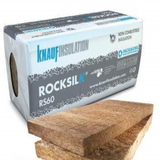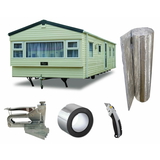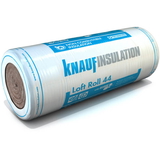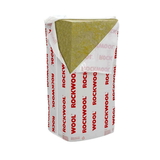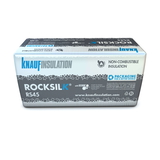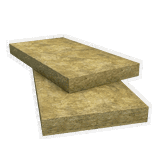- Blogs
- Advantages of Fibreglass and Rockwool as Campervan Insulation
Advantages of Fibreglass and Rockwool as Campervan Insulation

If you own a campervan, you know how important it is to have a comfortable and cosy interior. Whether you use your campervan for travelling, camping, or living, you want to make sure that you can enjoy your time inside without worrying about the weather outside. That’s why campervan insulation is essential for your comfort, safety and energy efficiency.
Campervan insulation is the process of adding materials to the walls, floor and ceiling of your campervan to reduce heat loss or gain, and to maintain a stable temperature inside. There are many types of camper van insulation materials available, such as foam, wool, fibreglass and rockwool. Each of them has its own advantages and disadvantages, depending on your budget, preference, and needs.
In this article, we will focus on two of the most popular and effective campervan insulation materials: fibreglass and rockwool. We will compare their advantages and provide some tips on how to use them safely and effectively. By the end of this article, you will have a better understanding of why fibreglass and rockwool are great choices for campervan insulation.
Fibreglass Insulation
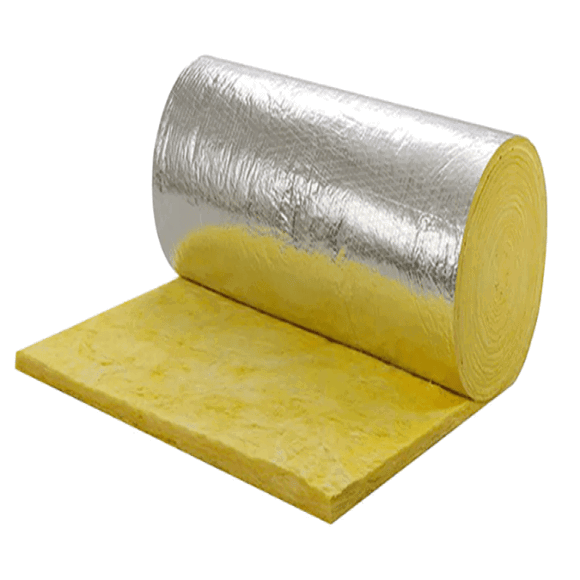 Fibreglass insulation is one of the most common and widely used campervan insulation materials. It is made from recycled glass and plastic fibres that are spun into a fluffy and lightweight material. Fibreglass insulation can be found in different forms, such as batts, rolls, boards or loose fill.
Fibreglass insulation is one of the most common and widely used campervan insulation materials. It is made from recycled glass and plastic fibres that are spun into a fluffy and lightweight material. Fibreglass insulation can be found in different forms, such as batts, rolls, boards or loose fill.
Fibreglass insulation has many advantages as a campervan insulation material, such as:
- It is lightweight, flexible, and easy to install. You can cut it to fit the gaps and spaces in your campervan walls, floor, and ceiling, and secure it with tape or glue. You can also use it to fill the cavities and corners of your campervan, where other insulation materials may not reach.
- It has a high R-value, which means it can resist heat transfer and keep your campervan warm in winter and cool in summer. The R-value of fibreglass insulation depends on its thickness and density, but it usually ranges from 2.9 to 4.3 per inch. The higher the R-value, the better the insulation performance.
- It is fire-resistant, moisture-resistant, and mould-resistant, which can prevent damage and health hazards. Fibreglass insulation does not burn easily, and it does not absorb water or support the growth of mould. This can protect your campervan from fire, rot and mildew, and improve the air quality inside.
- It is affordable and widely available in different sizes and shapes. Fibreglass insulation is one of the cheapest campervan insulation materials, and you can find it in most hardware stores or online shops. You can choose the size and shape that suits your campervan best, and you can also mix and match different types of fibreglass insulation for optimal results.
However, fibreglass insulation also has some drawbacks that you need to be aware of, such as:
- It can cause skin irritation and respiratory problems if you are not careful when handling it. Fibreglass insulation contains tiny glass and plastic fibres that can break off and get into your skin, eyes, nose and lungs. This can cause itching, redness, inflammation, and coughing. Therefore, you need to wear protective clothing, gloves and a mask when installing fibreglass insulation, and wash your hands and clothes afterwards.
- It can lose its effectiveness if it gets wet or compressed. Fibreglass insulation relies on the air trapped between its fibres to provide insulation. If the fibreglass insulation gets wet or compressed, it can lose its air pockets and reduce its R-value. Therefore, you need to cover the fibreglass insulation with a vapour barrier, such as foil or plastic, to prevent condensation and moisture build-up. You also need to avoid compressing the fibreglass insulation, as it can create air gaps and reduce its thermal performance.
Rockwool Insulation
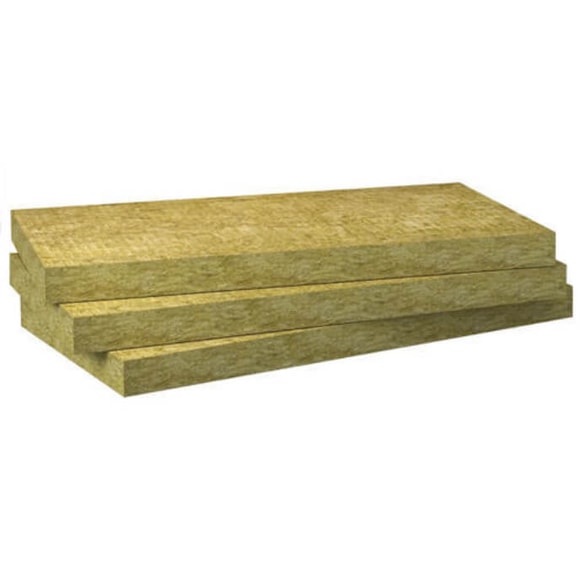 Rockwool insulation is another popular and effective campervan insulation material. It is made from volcanic rock and steel slag that are melted and spun into a dense, wool-like material. Rockwool insulation can be found in different forms, such as batts, rolls, boards, or loose fill.
Rockwool insulation is another popular and effective campervan insulation material. It is made from volcanic rock and steel slag that are melted and spun into a dense, wool-like material. Rockwool insulation can be found in different forms, such as batts, rolls, boards, or loose fill.
Rockwool insulation has many advantages as a campervan insulation material, such as:
- It is durable, resilient, and long-lasting, as it can withstand high temperatures, vibrations, and impacts. Rockwool insulation does not degrade or deteriorate over time, and it can retain its shape and size even after being exposed to harsh conditions. This can ensure that your campervan insulation lasts for a long time and does not need frequent maintenance or replacement.
- It has a high R-value, which means it can resist heat transfer and keep your campervan warm in winter and cool in summer. The R-value of rockwool insulation depends on its thickness and density, but it usually ranges from 3.0 to 4.2 per inch. The higher the R-value, the better the insulation performance.
- It is fire-resistant, moisture-resistant and mould-resistant, which can prevent damage and health hazards. Rockwool insulation does not burn easily, and it does not absorb water or support the growth of mould. This can protect your campervan from fire, rot and mildew, and improve the air quality inside.
- It is soundproof, which can reduce noise and improve privacy in your campervan. Rockwool insulation has a high density and a fibrous structure, which can absorb and block sound waves. This can reduce the noise from the outside, such as traffic, wind, or rain, and from the inside, such as music, conversation, or appliances. This can make your campervan quieter and more peaceful, and enhance your comfort and relaxation.
However, rockwool insulation also has some drawbacks that you need to be aware of, such as:
- It can cause skin irritation and respiratory problems if you are not careful when handling it. Rockwool insulation contains tiny rock and metal fibres that can break off and get into your skin, eyes, nose and lungs. This can cause itching, redness, inflammation, and coughing. Therefore, you need to wear protective clothing, gloves and a mask when installing rockwool insulation, and wash your hands and clothes afterwards.
- It can be heavy and difficult to install. Rockwool insulation has a high density and a rigid structure, which makes it heavier and harder to cut and fit than fibreglass insulation. You may need to use special tools and techniques to install rockwool insulation, and you may need to hire a professional to do it for you. You also need to make sure that your campervan can support the extra weight of rockwool insulation, and that it does not affect its balance and stability.
Fibreglass and Rockwool Insulation Products from Buy Insulation Online
Some fibreglass and rockwool products from our website “Buy Insulation Online” can be used as campervan insulation. Here are some examples of the products you can find on the website:
- Fibreglass
- Knauf Loft Insulation: This is a fibreglass insulation product that comes in a roll form. It is suitable for loft or roof insulation, as well as wall and floor insulation. It has a high R-value of 4.3 per inch, and it is lightweight, flexible and easy to install. It is also fire-resistant, moisture-resistant and mould-resistant. You can cut it to fit the gaps and spaces in your campervan and secure it with tape or glue. You can also cover it with a vapour barrier to prevent condensation and moisture build-up.
- Isover Climpipe Fibreglass Pipe Insulation: This is a fibreglass insulation product that comes in a pipe form. It is suitable for pipe insulation, as well as duct insulation. It has a high R-value of 4.2 per inch, and it is lightweight, flexible and easy to install. It is also fire-resistant, moisture-resistant and mould-resistant. You can cut it to fit the pipes and ducts in your campervan and secure it with tape or glue. You can also cover it with a vapour barrier to prevent condensation and moisture build-up.
- Isover Climcover Duct Insulation - Ductwrap: This is a fibreglass insulation product that comes in a roll form. It is suitable for duct insulation, as well as wall and floor insulation. It has a high R-value of 4.3 per inch, and it is lightweight, flexible and easy to install. It is also fire-resistant, moisture-resistant and mould-resistant. You can cut it to fit the ducts and spaces in your campervan and secure it with tape or glue. You can also cover it with a vapour barrier to prevent condensation and moisture build-up.
- Rockwool
- Rockwool Pipe Insulation - Aluminium Foil-Faced Pipe Lagging: This is a rockwool insulation product that comes in a pipe form. It is suitable for pipe insulation, as well as duct insulation. It has a high R-value of 4.2 per inch, and it is durable, resilient and long-lasting. It is also fire-resistant, moisture-resistant, mould-resistant and soundproof. You can cut it to fit the pipes and ducts in your campervan and secure it with screws or nails. You can also cover it with a vapour barrier to prevent condensation and moisture build-up.
- Rockwool Flexi Slab - Acoustic Insulation: This is a rockwool insulation product that comes in a slab form. It is suitable for wall insulation, as well as floor and ceiling insulation. It has a high R-value of 3.6 per inch, and it is durable, resilient, and long-lasting. It is also fire-resistant, moisture-resistant, mould-resistant, and soundproof. You can cut it to fit the gaps and spaces in your campervan walls, floor, and ceiling, and secure it with screws or nails. You can also cover it with a vapour barrier to prevent condensation and moisture build-up.
- Rockwool RWA45 - Acoustic Insulation Slab: This is a rockwool insulation product that comes in a slab form. It is suitable for wall insulation, as well as floor and ceiling insulation. It has a high R-value of 3.0 per inch, and it is durable, resilient, and long-lasting. It is also fire-resistant, moisture-resistant, mould-resistant, and soundproof. You can cut it to fit the gaps and spaces in your campervan walls, floor and ceiling, and secure it with screws or nails. You can also cover it with a vapour barrier to prevent condensation and moisture build-up.
These are just some of the fibreglass and rockwool products that you can find on our website “Buy Insulation Online”. You can browse more products, order online, and enjoy fast delivery to your doorstep. You can also contact the website for more information and advice on campervan insulation.
Material Considerations in Choosing Campervan Insulation
In choosing the best insulation for your campervan, considering factors like weather conditions, insulation material properties, and installation ease is crucial. While fibreglass and rockwool offer commendable thermal resistance and soundproofing, options like spray foam, foil insulation, or rigid insulation are also worth exploring. Each material has distinct advantages; for instance, spray foam conforms well to irregular surfaces, while fibreglass and rockwool are cost-effective choices. Nevertheless, it's essential to address potential drawbacks.
Fibreglass may cause skin irritation during installation, whereas rockwool might produce dust particles, requiring protective gear. Additionally, proper sealing, adequate ventilation, and considering a vapour barrier are universal practices ensuring insulation effectiveness. Whether insulating walls, floors, or ceilings, the goal is to optimize comfort while mitigating moisture buildup or noise intrusion.
Exploring insulation materials beyond fibreglass and rockwool can be beneficial, especially considering factors like insulation thickness, material durability, and budget constraints. Therefore, evaluating insulation needs comprehensively helps in selecting the most suitable material for your campervan's insulation.
Diverse Insulation Selection for Campervan Comfort
When it comes to van conversions or DIY camper projects, the choice of insulation material plays a pivotal role. There's a wide array of options available, including insulation board, foil insulation, rigid insulation, cork insulation, and even sheep wool insulation.
Each material boasts unique insulating properties suited for different areas like van walls, floors, or ceilings. Considering the insulation between your van's frame or the metal bodywork is crucial to retaining heat inside the van while keeping it cool in varying climates.
Insulation Essentials: DIY Strategies and Material Attributes
Insulating a camper van involves more than just choosing a material; it's about understanding how insulation works inside your van. Whether it's insulating the whole van or focusing on specific areas like floor insulation, the right choice ensures comfort and efficiency. Professionals recommend using loft insulation or efficient materials like PIR insulation to effectively keep heat away from the van's interior.
It's also essential to insulate your van in a way that minimizes vibrations and noise, making the camper van's interior a more peaceful and comfortable space. Factors like the thickness of the material and insulating properties are pivotal when selecting the best insulation materials for your campervan conversion.
Navigating Insulation Choices for Your Campervan
Choosing between fibreglass and rockwool insulation for your campervan depends on several factors, including budget constraints, specific insulation needs, and personal preferences. Both materials offer commendable insulation properties, ensuring a comfortable interior environment. Assessing your campervan's unique requirements aids in making the most suitable selection between these two respected insulation materials.
Insulation in a campervan spans across various areas such as walls, floors, and ceilings, where fibreglass or rockwool can be effectively applied. These versatile materials cater to comprehensive thermal and sound insulation needs. However, it's essential to acknowledge potential drawbacks—fibreglass might cause skin irritation during installation, while rockwool requires precautions against dust exposure, emphasizing the importance of protective gear. Adequate ventilation and sealing remain pivotal to prevent issues related to moisture buildup within the insulation, ensuring a more enduring and effective insulation solution for your campervan.
Effective Campervan Insulation Practices
Comparing insulation effectiveness is crucial when considering materials for your campervan. Fibreglass and rockwool insulation stand out, providing competitive thermal and sound insulation properties compared to common materials like spray foam, foil insulation, or rigid insulation. However, when installing fibreglass or rockwool insulation in your campervan, adherence to best practices is key.
This includes ensuring a precise fit, meticulous sealing of gaps, and considering the use of a vapour barrier to enhance the insulation's performance. Following safety guidelines for handling and installation further guarantees the effectiveness and longevity of the insulation within your campervan.
Frequently Asked Questions
Q: What are the advantages of using fibreglass and rockwool as campervan insulation?
A: Fibreglass and rockwool are popular choices for campervan insulation due to their excellent thermal properties, sound insulation, and affordability. They are also relatively easy to work with and can be installed in various areas of the campervan.
Q: Can I use fibreglass or rockwool insulation in my campervan conversion?
A: Yes, both fibreglass and rockwool insulation can be used effectively in campervan conversions. They are versatile and can be installed in walls, floors, and ceilings to provide comprehensive insulation for the van.
Q: Are there any special considerations when using fibreglass or rockwool insulation in a campervan?
A: It's important to ensure proper ventilation and consider using a vapor barrier when using fibreglass or rockwool insulation in a campervan. This helps to prevent condensation and moisture buildup within the insulation.
Q: How does fibreglass and rockwool insulation compare to spray foam insulation for campervans?
A: While spray foam insulation offers excellent sealing and can conform to irregular surfaces, fibreglass and rockwool insulation provide good thermal and sound insulation properties at a more affordable cost.
Q: Can I insulate my van using fibreglass or rockwool insulation on my own?
A: Yes, fibreglass and rockwool insulation can be installed as a DIY project in a van. However, it is essential to follow proper safety precautions and installation guidelines to ensure effective and safe insulation.
Conclusion
As you can see, fibreglass and rockwool are excellent campervan insulation choices. They have many advantages, such as high R-value, fire resistance, moisture resistance, mould resistance and soundproofing, that can make your campervan more comfortable, safe and energy efficient. They also have some drawbacks, such as skin irritation, respiratory problems, wetness, compression, weight, and difficulty of installation, that you need to be careful of and avoid.
The best campervan insulation material depends on your budget, preference and needs. You may want to consider the following factors when choosing between fibreglass and rockwool insulation:
- The size and shape of your campervan and the spaces you want to insulate. Fibreglass insulation is more flexible and easier to install, while rockwool insulation is more rigid and difficult to install. You may want to choose the insulation material that fits your campervan best and covers the gaps and spaces most effectively.
- The climate and weather conditions of your campervan location and destination. Fibreglass insulation is more prone to wetness and compression, while rockwool insulation is more resistant to heat and impact. You may want to choose the insulation material that can cope with the temperature and humidity changes and the physical stress of your campervan environment.
- The noise level and privacy of your campervan and the surrounding area. Rockwool insulation is more soundproof than fibreglass insulation, and it can reduce the noise from both the outside and the inside of your campervan. You may want to choose the insulation material that can make your campervan quieter and more peaceful, and enhance your comfort and relaxation.
If you are still unsure about which campervan insulation material to choose, you can always consult a professional or an expert for advice and guidance. You can also visit our website “Buy Insulation Online” for more information and products on campervan insulation.
We have a wide range of fibreglass and rockwool insulation products, as well as other types of insulation materials, that can suit your campervan needs and preferences. We also offer free delivery, easy returns, and excellent customer service.

Samuel Hitch
Managing Director
Buy Insulation Online.
Leave A Reply
Your feedback is greatly appreciated, please comment on our content below. Your email address will not be published. Required fields are marked *
